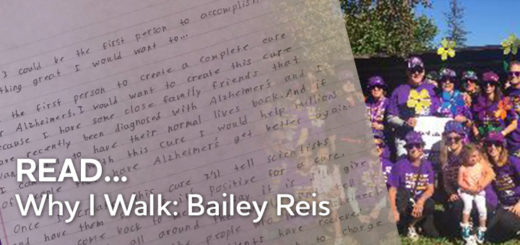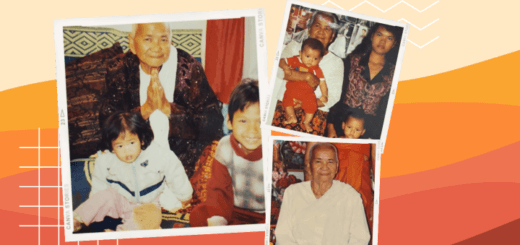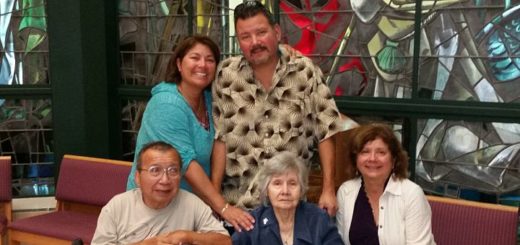Alzheimer’s Task Force takes on prevention and preparedness
When California’s 31-member Alzheimer’s Prevention and Preparedness Task Force gathered last week in Sacramento for its first meeting, the voices of the Alzheimer’s Association – Northern California and Northern Nevada Chapter were well represented.
Researchers, health care professionals, government officials and advocates for diverse communities were among those who shared our region’s messages, priorities and concerns.
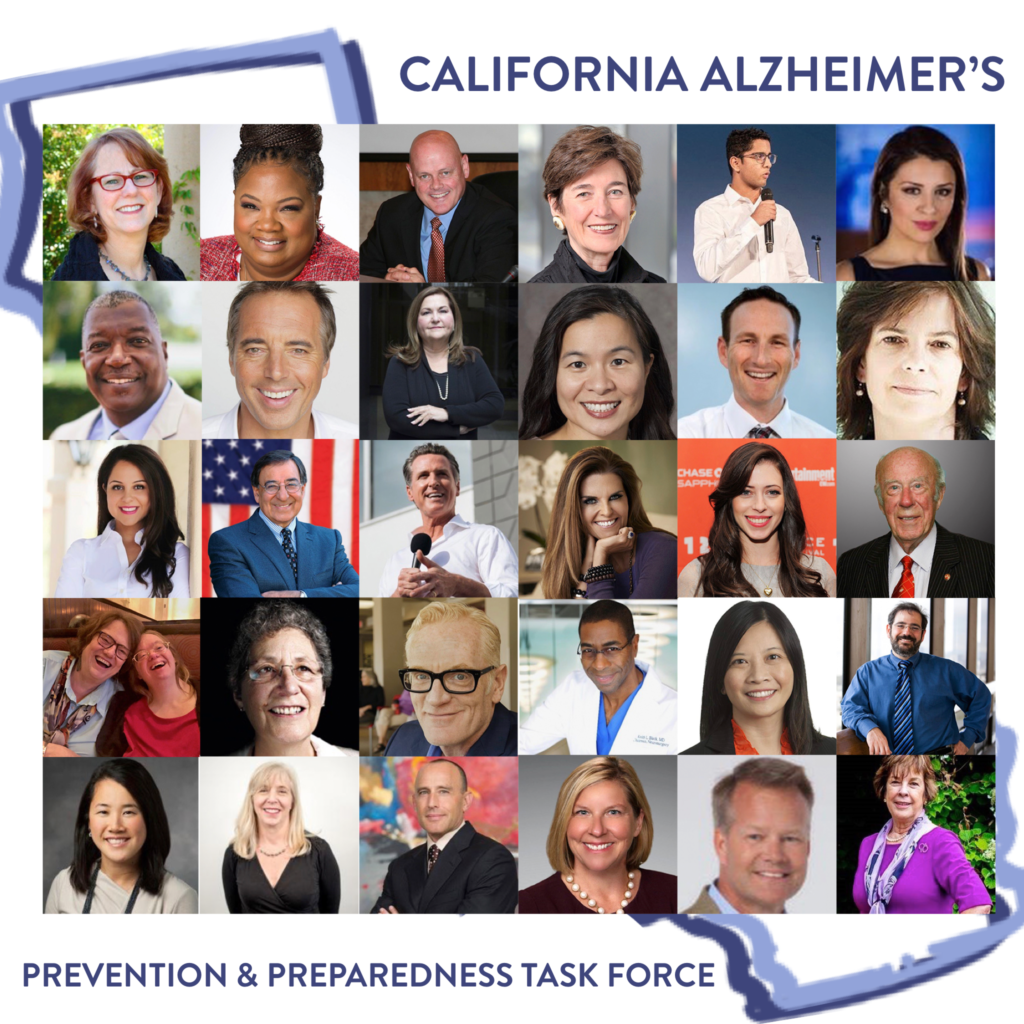
Focusing on needs of underrepresented communities
“I am hoping to bring a voice to the diverse communities in Sacramento that I’ve had the joy and honor of working with, to be able to give these communities a voice in Alzheimer’s recommendations and research,” says Dr. Oanh Meyer. An Alzheimer’s Association grantee, Dr. Meyer is a social psychologist and assistant adjunct professor at the UC Davis Alzheimer’s Disease Center. Dr. Meyer specializes in the impact of Alzheimer’s and dementia on caregivers “” especially those from underrepresented racial/ethnic communities.
First convening
Former California First Lady Maria Shriver, the Task Force Chair, convened the first meeting of the group on November 19. November is national Alzheimer’s Awareness and Family Caregiver month.
The Task Force will spend about a year developing recommendations to help California prevent and prepare for the expected explosion in the number of cases of Alzheimer’s disease in the years ahead. Recommendations will ask local communities, private organizations, businesses, government and families to take action. The high-level group must release a report by next fall, near the time Gov. Gavin Newsom’s statewide master plan on aging is expected to be released.
California’s changing demographics
Task Force members say California’s dramatically shifting demographics make it imperative for the state to act. The Golden State has the largest aging population in the nation. Multiple agencies and groups will need to leverage and enact the recommendations if California is to effectively address Alzheimer’s.
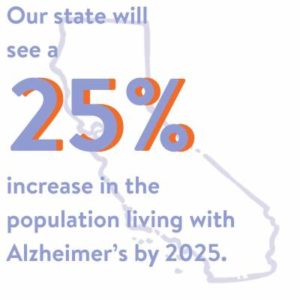
Consider that today Alzheimer’s is the second leading cause of death in California, and the leading cause of death among women in the state.
“With 2.3 million Californians “” today “” directly impacted by Alzheimer’s, and double-digit growth projected over the next decade, our state can’t afford to ignore this community,” says Task Force member Susan DeMarois, Director of Public Policy for the Northern California and Northern Nevada Chapter of the Alzheimer’s Association. “Dementia touches multiple generations and every part of California.”
Making an impact
Another Task Force member, Fresno TV news anchor Graciela Moreno, says, “Alzheimer’s is a misunderstood disease. I hope that we are able to learn and better understand its impact on both the patient and caregiver, and make significant changes that will help both.”
Moreno has been active through the Alzheimer’s Association in creating awareness and spreading the word about Alzheimer’s throughout the Central Valley. She has focused her efforts on groups at higher risk, such as Latinos, African Americans and women.
Improving the healthcare system
Tasks Force member Dr. Howie Rosen is a behavioral neurologist and Professor of Neurology at UC San Francisco Memory and Aging Center. Dr. Rosen says it is key that the Task Force’s activities will coincide with the state’s overall efforts to draft a master plan on aging:
“This gives us a lot of opportunity from an infrastructure perspective, the resources of the state and how they help “” or do not help “” people with dementia and their families, our healthcare system, and how care for dementia is reimbursed and covered. All of this has to be thought of in a master plan [for aging] and [the Alzheimer’s] Task Force.”
Using recommendations to effect change
Task Force members agree that writing a persuasive, compelling list of recommendations will only be the beginning of the heavy lifting ahead. Those who seek true change in California include those who study Alzheimer’s, those who live with it and the people who care for them.
“About 10 years ago, I led the project to develop California’s first Alzheimer’s State Plan,” DeMarois recalls. “Disappointingly, many of the goals outlined in that comprehensive report still elude us.” Perhaps most disappointing, she says, the state still lacks “a comprehensive, culturally-competent statewide public education campaign to inform consumers of early warning signs of Alzheimer’s and when to seek help from a health professional.”
It’s important, agrees Dr. Meyer, that the recommendations “will not just be written on a piece of paper, but that they will actually effect change in terms of how we can help the community.”
Improving support for those affected
High on Dr. Meyer’s list? “I’m really hoping that through the Task Force we will be able to expedite the process of providing quality care to culturally and linguistically diverse communities as they’re dealing with this disease, whether it’s for the family caregivers or the persons living with dementia.”
For DeMarois, “The ultimate goal is to create a new financing model that offers relief to middle class families shouldering the cost of care, to their detriment. Many families “˜spend down’ their assets to impoverishment to qualify for Medi-Cal. That’s not a sustainable “” or humane “”model. We’d like to see a Long-Term Services and Supports (LTSS) cash benefit similar to the one recently passed in the state of Washington.”
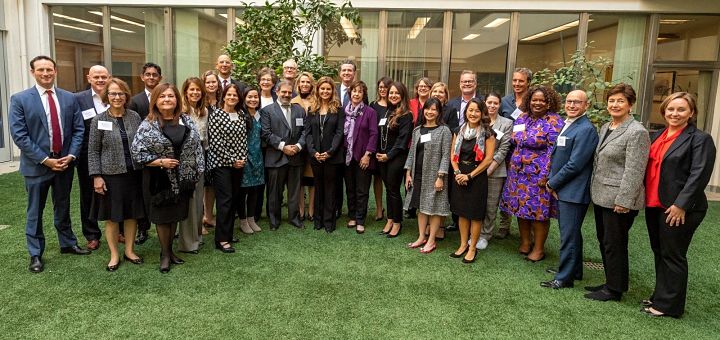
Improving diagnosis and care
High among Dr. Rosen’s task force priorities would be a recommendation to improve our state’s ability to diagnose and address dementia and Alzheimer’s within the primary care setting. He also hopes they will make more effective use of expert programs like UCSF’s Memory and Aging Center:
“You can’t evaluate a cognitive complaint in 10 minutes. It’s just not possible. You want more time. You need more time. And you only get 20 minutes for a visit. It’s a very practical, concrete problem to solve.”
Raising awareness
Moreno hopes that the Task Force’s efforts result in an expansive statewide public information and awareness campaign. She believes that it is important to enhance every Californian’s understanding of caregiving, prevention and research.
“I really would like to see Alzheimer’s become a cause that people deeply care about, like some other causes,” she says, “because it can impact all of our families.”
Other Task Force members from our chapter include Board Member Dr. Marcy Adelman, volunteer Paula Gann and her daughter Kyle Scrivner, volunteer advocates Pam Montana and Bob Linscheid, and Dr. Kristine Yaffe. The Task Force wants to hear from you: share your story with them.
Learn more:





